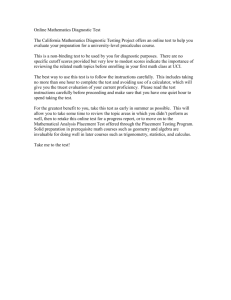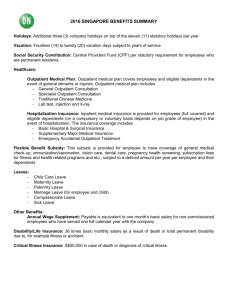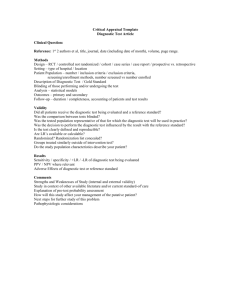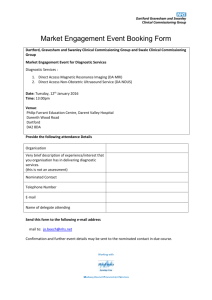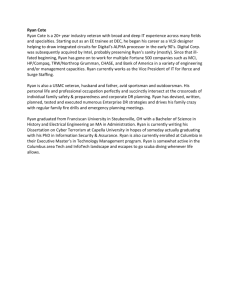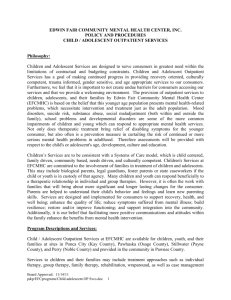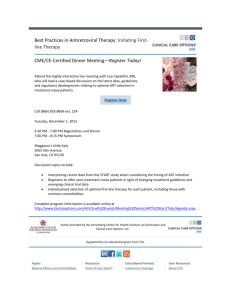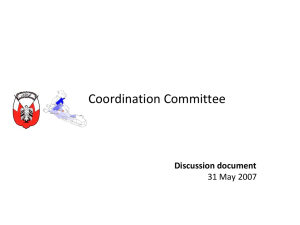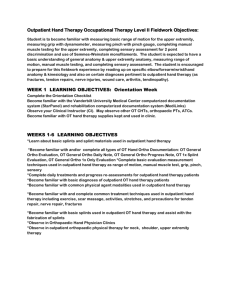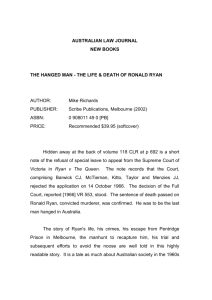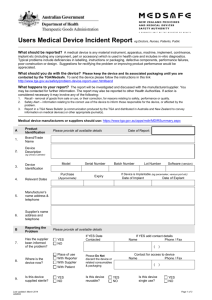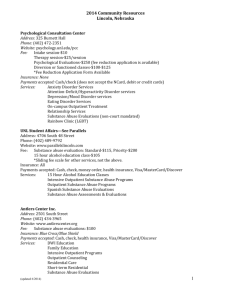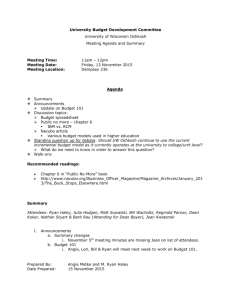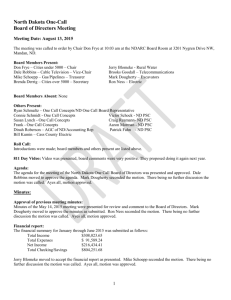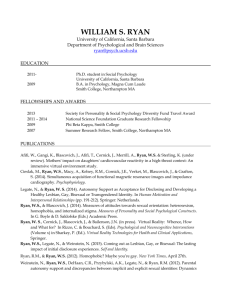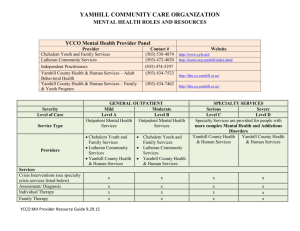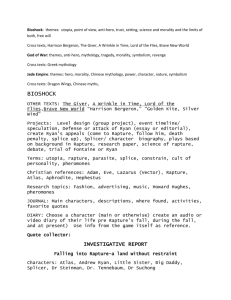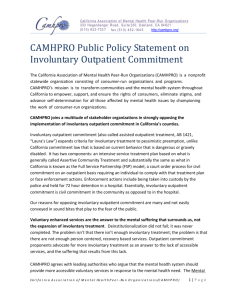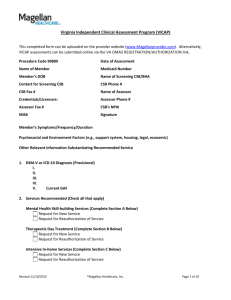Cleveland TGA Service Definition
advertisement
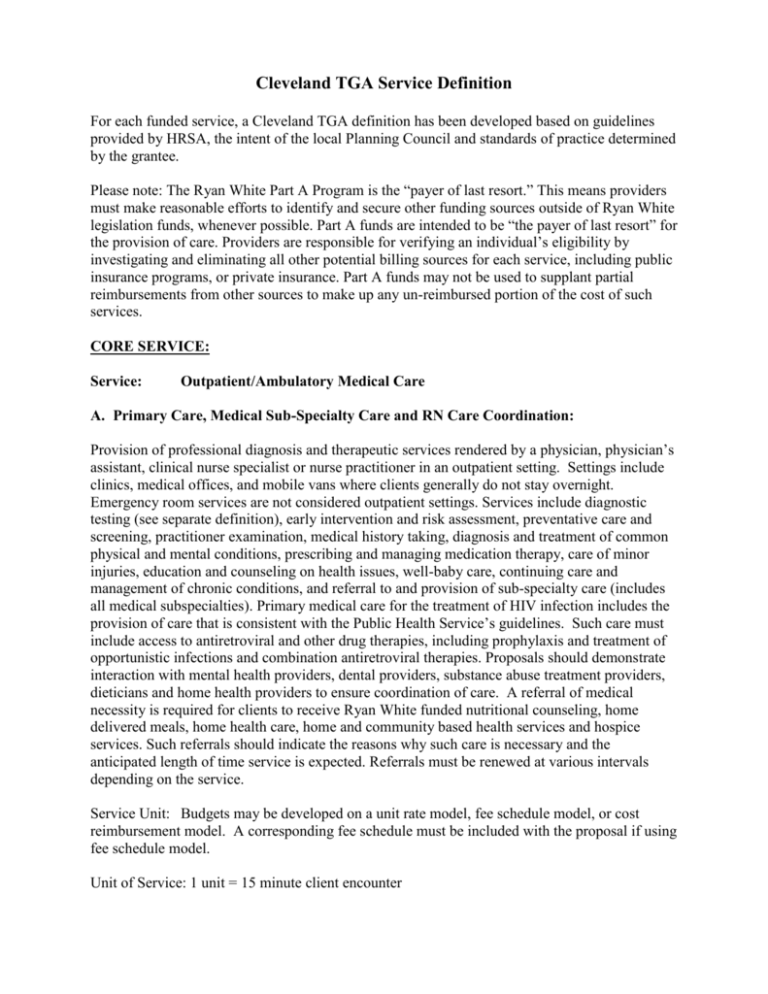
Cleveland TGA Service Definition For each funded service, a Cleveland TGA definition has been developed based on guidelines provided by HRSA, the intent of the local Planning Council and standards of practice determined by the grantee. Please note: The Ryan White Part A Program is the “payer of last resort.” This means providers must make reasonable efforts to identify and secure other funding sources outside of Ryan White legislation funds, whenever possible. Part A funds are intended to be “the payer of last resort” for the provision of care. Providers are responsible for verifying an individual’s eligibility by investigating and eliminating all other potential billing sources for each service, including public insurance programs, or private insurance. Part A funds may not be used to supplant partial reimbursements from other sources to make up any un-reimbursed portion of the cost of such services. CORE SERVICE: Service: Outpatient/Ambulatory Medical Care A. Primary Care, Medical Sub-Specialty Care and RN Care Coordination: Provision of professional diagnosis and therapeutic services rendered by a physician, physician’s assistant, clinical nurse specialist or nurse practitioner in an outpatient setting. Settings include clinics, medical offices, and mobile vans where clients generally do not stay overnight. Emergency room services are not considered outpatient settings. Services include diagnostic testing (see separate definition), early intervention and risk assessment, preventative care and screening, practitioner examination, medical history taking, diagnosis and treatment of common physical and mental conditions, prescribing and managing medication therapy, care of minor injuries, education and counseling on health issues, well-baby care, continuing care and management of chronic conditions, and referral to and provision of sub-specialty care (includes all medical subspecialties). Primary medical care for the treatment of HIV infection includes the provision of care that is consistent with the Public Health Service’s guidelines. Such care must include access to antiretroviral and other drug therapies, including prophylaxis and treatment of opportunistic infections and combination antiretroviral therapies. Proposals should demonstrate interaction with mental health providers, dental providers, substance abuse treatment providers, dieticians and home health providers to ensure coordination of care. A referral of medical necessity is required for clients to receive Ryan White funded nutritional counseling, home delivered meals, home health care, home and community based health services and hospice services. Such referrals should indicate the reasons why such care is necessary and the anticipated length of time service is expected. Referrals must be renewed at various intervals depending on the service. Service Unit: Budgets may be developed on a unit rate model, fee schedule model, or cost reimbursement model. A corresponding fee schedule must be included with the proposal if using fee schedule model. Unit of Service: 1 unit = 15 minute client encounter B. Diagnostic Laboratory Testing: This includes all indicated medical diagnostic testing including all tests considered integral to treatment of HIV and related complications (e.g. Viral Load, CD4 counts and genotype assays). Funded tests must meet the following conditions: Tests must be consistent with medical and laboratory standards as established by scientific evidence and supported by professionals, panels, associations or organization. Tests must be: Approved by the FDA, when required under the FDA Medical Devices Act and/or Performed in an approved Clinical Laboratory Improvement Amendments of 1988 (CLIA) certified laboratory or State exempt laboratory; and Tests must be: Ordered by a registered, certified or licensed medical provider and Necessary and appropriate based on established clinical practice standards and professional clinical judgment. Unit of Service: 1 unit = 1 lab procedure


